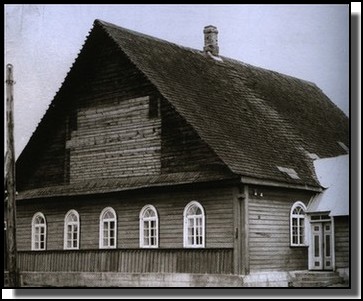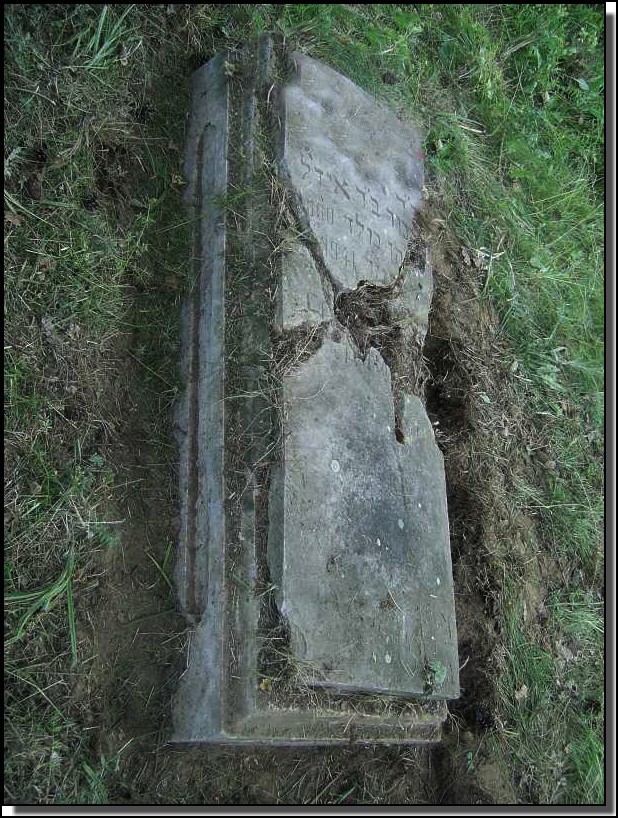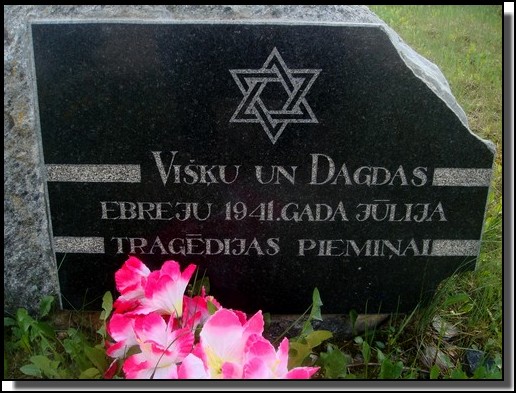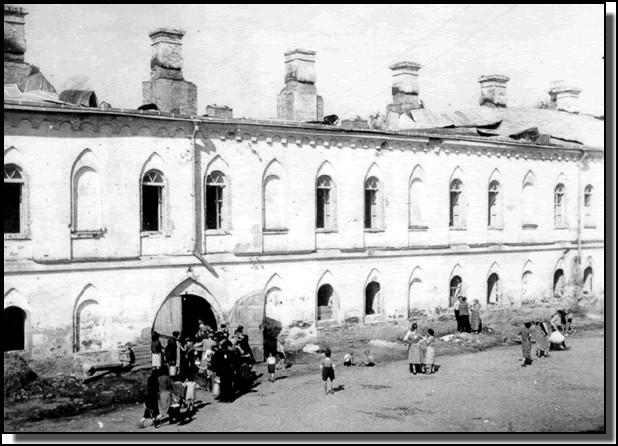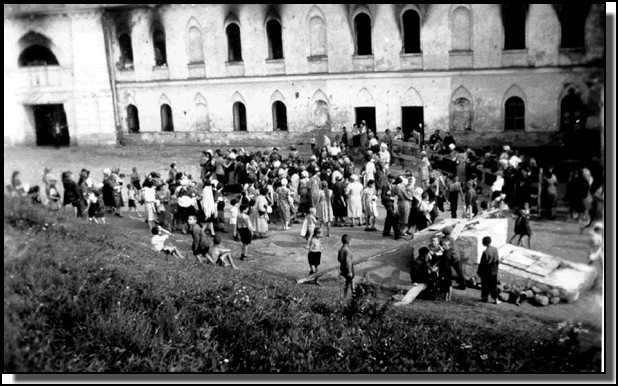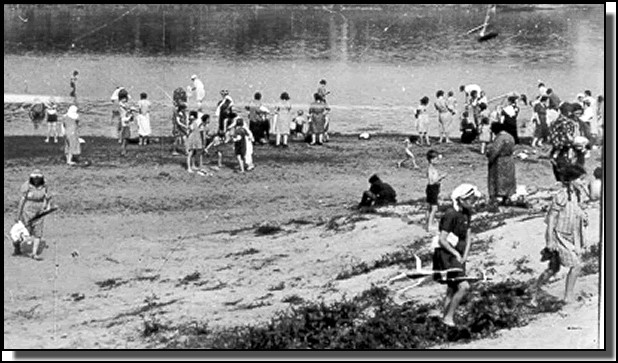in 1941
From the memories of his grandson Leizer Dumesh
and the war diaries of Kurt Marien
by Dorothea Marien
Translation from German by Paul Deitch

from left to right: Hana born Bleimann, Israel Dumesh, Granddaughter of Genoch,
Genoch Dumesh - 1920
My grandfather Genoch was the high priest of Vishky. In the synagogue, during the prayers, he was greatly honoured. I was very proud. Genoch’s place in the synagogue was the most honorable, located exactly opposite the Torah altar and where the rabbi held the service. After the synagogue (prayers) he often came to our house.
My grandfather was a "blekher" (tinsmith). He had a workshop, where he made tableware of white iron/metal and many implements and, in addition, small bath tubs for children. He repaired tableware.
The drama
Izrael Dumesh 1928 Moysey Dumesh 1923 Izrael and Moysey Dumesh. Jurmala. 1948
Click on pictures to enlarge
There still were many among the Russians and Latvians that remained friends with them and they explained what had happened. They were all eye-witnesses in Vishky and consequently the fate of my grandfather was well known to everybody..They showed them the place where he had been buried and my uncle had his body exhumed.
When
my father and uncle Moysey returned, they told us the whole story and
to my question about what had become of our house, he said: “only
a stone wall remains“. Then they said that the synagogue was
burnt down in July 1941 with the Jews still alive inside."
The synagogue road (School Lane) had been destroyed, as well as many houses in which Jews had lived.
A personal remark from myself, Christine Usdin: The Latvian (as Lithuanian) population carries larger share of the blame than the German soldiers, simply because they had the choice.
Where our paths crossed ....by Dorothea Marien
Together, my mother and I, looked through the war diaries, in which my father had noted each day’s events.
Suddenly we stumbled over an entry:
Jewish village Visky/Wischky
30.6.1941
On duty. Arrival in Visky 02:00
Jews herded together.
Shot at with machine gun.
Good (=mad) sight.
Received 12 eggs per nose. Stone protection trenches built. Laundry washed.
Night duty on the equipment. Shops cleared out.
In
the middle of the night, my father together, with his Company took part
in driving the Jewish population from their beds and out of their
houses. They were herded together in order murder them all. (At the
time a total of 750 people lived in Vishky, of which over 50%, about
450 were Jews.) In order to herd them and force them together, my
father’s Company shot into the group of people. While the Jews
were being rounded up (driven together) in order to go to their death,
Genoch Dumesh a dignified old man, a Jewish clergyman refused to join
the group. He was immediately slaughtered/shot on the spot.
Laizer Dumesh, his grandson explained:
"Everyone knew Genoch Dumesh and not only the Jews.
He
had been a Tinsmith and his tableware and handiwork was used in
countless households, and many generations of children in Vishky and
the surrounding area had bathed in his bath tubs. Consequently
everything about his fate was well known and everyone in Vishky was an
eye witness”.
My father was there, he was an accomplice and eye witness. He never spoke about it.
Afterwards the German soldiers received, “as reward “, 12 eggs each.
That always happened, when terrible deeds were required from the soldiers - they were rewarded.
It
must not be forgotten that not only the Latvian but also the Lithuanian
(and Ukrainian) population helped the German occupying forces to
slaughter the Jews. They were often the Todeskommandos. They thanked
the German soldiers and Einsatzgruppen for the destruction of the Jews
by giving them presents and like the German soldiers took possession of the Jewish houses and property (see: Shops cleared out - looted).
Some
days later the Jews of Vishky together with the Jews from the
surrounding Schtetl were taken to Dünaburg into a ghetto on the
river Duna.
They were all killed here (over 15000 people) in the Pagulanka forest near Dünaburg.
I can only request forgiveness.
Genoch Dumesh’s sons learned of the awful event after the war.
9 July 2010
The song "Fire" was interpreted by Emma Shaver in 1943

